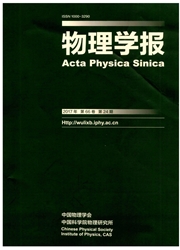

 中文摘要:
中文摘要:
为了保持神经网络在优化计算求解过程中结构不被改变,以迟滞混沌神经元和迟滞混沌神经网络为研究对象,提出了一种基于滤波跟踪误差的控制策略来实现神经元/网络的稳定控制.采用该控制策略,在不改变非线性特性发生机理的情况下,神经元/网络可实现函数优化计算问题的求解.所设计的控制律包含两部分:一部分是系统进入滤波跟踪误差面时的等效控制部分,另一部分为确保系统快速进入滤波跟踪误差面的控制部分.采用Lyapunov方法对神经元/网络的控制进行了稳定性证明.根据待寻优函数直接求得神经元的控制律,在该控制律的作用下,神经元/网络可逐渐稳定到优化函数的极值点,从而实现优化问题的求解,仿真实验结果验证了该控制方法在优化计算中的可行性和有效性.
 英文摘要:
英文摘要:
In order to remain the structure of the neural network in the process of the optimization unchanged, taking the hysteretic chaotic neuron and the hysteretic chaotic neural network as controlled plants, a novel control strategy based on the filtered tracking error is proposed to perform the stability control for the single hysteretic chaotic neuron or the hysteretic chaotic neural network. Especially, the hysteretic chaotic neuron and the hysteretic chaotic neural network can be used to solve the optimization problem through using the control strategy on condition that the generation mechanisms of the nonlinear characteristics, hysteresis and chaos, are unchanged. The control law is composed of two terms: one is the equivalent control term in the ideal filtered tracking error surface, and the other is the control term which can make the system reach the filtered tracking error surface quickly. Lyapunov stability method is used to prove the stability of the control strategy for the single hysteretic chaotic neuron and hysteretic chaotic neural network. The control laws of hysteretic chaotic neurons can be obtained according to the optimization function. The state of the single hysteretic chaotic neuron or the hysteretic chaotic neural network can converge to an extreme point of the optimization function gradually by the control law. In this way, the optimization problem can be solved effectively. Simulation results prove the feasibility and validity of the control strategy for optimization problem.
 同期刊论文项目
同期刊论文项目
 同项目期刊论文
同项目期刊论文
 期刊信息
期刊信息
